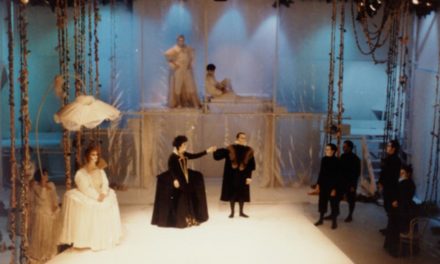The death of Pina Cipriani, on the 19th of June, is a great loss for Italian and specifically Neapolitan theatre and music. Born in Casal di Principe, in Caserta province, Cipriani has been a column of the culture of the most theatrical of the Italian cities, giving a fundamental value to the performing arts in the second part of the 20th century.
In 1972, together with the husband Franco Nico, Cipriani founded the “Teatro Sancarluccio”, that quickly became one of the most important venues in Naples and that Cipriani lead for more than 30 years. Despite its little auditorium, the Sancarluccio, positioned in the aristocratic district of Chiaia, hosted some artists who were destined to become great and, on many occasion, to be considered as geniuses, such as Roberto Benigni and Leopoldo Mastelloni. It was especially the case of the trio composed by Massimo Troisi, Enzo Decaro, and Lello Arena: the three started as “I Saraceni” at the “Centro Teatro Spazio” in San Giorgio a Cremano but only in 1976 during their performance at Sancarluccio changed their name in the iconic one of “La smorfia,” becoming one the cult Italian ensembles.
The importance of Cipriani was not only related to theatre, but also to music with an internationally recognized career that has included an outstanding repertoire of traditional and classical music. Among this, her most famous vocal performance has been the interpretation of the Quanno nascette Ninno (1754), a Christmas carol in Neapolitan language, considered the masterpiece of Alfonso Maria De Liguori. Other notable performances are the one based on the verses by Totò and Eduardo De Filippo, with musical adaptation by Franco Nico, in which Cipriani found a balance between tradition and innovation.
This post was written by the author in their personal capacity.The opinions expressed in this article are the author’s own and do not reflect the view of The Theatre Times, their staff or collaborators.
This post was written by Armando Rotondi.
The views expressed here belong to the author and do not necessarily reflect our views and opinions.


















